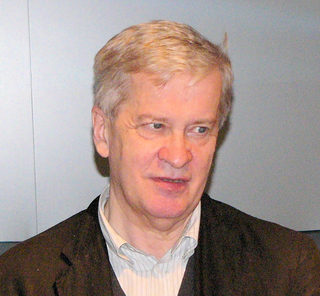Related Research Articles

Heterosexuality is romantic attraction, sexual attraction or sexual behavior between people of the opposite sex or gender. As a sexual orientation, heterosexuality is "an enduring pattern of emotional, romantic, and/or sexual attractions" to people of the opposite sex; it "also refers to a person's sense of identity based on those attractions, related behaviors, and membership in a community of others who share those attractions." Someone who is heterosexual is commonly referred to as straight.

A lesbian is a homosexual woman or girl. The word is also used for women in relation to their sexual identity or sexual behavior, regardless of sexual orientation, or as an adjective to characterize or associate nouns with female homosexuality or same-sex attraction. The concept of "lesbian" to differentiate women with a shared sexual orientation evolved in the 20th century. Throughout history, women have not had the same freedom or independence as men to pursue homosexual relationships, but neither have they met the same harsh punishment as gay men in some societies. Instead, lesbian relationships have often been regarded as harmless, unless a participant attempts to assert privileges traditionally enjoyed by men. As a result, little in history was documented to give an accurate description of how female homosexuality was expressed. When early sexologists in the late 19th century began to categorize and describe homosexual behavior, hampered by a lack of knowledge about homosexuality or women's sexuality, they distinguished lesbians as women who did not adhere to female gender roles. They classified them as mentally ill—a designation which has been reversed since the late 20th century in the global scientific community.

Sexual orientation is an enduring personal pattern of romantic attraction or sexual attraction to persons of the opposite sex or gender, the same sex or gender, or to both sexes or more than one gender. Patterns are generally categorized under heterosexuality, homosexuality, and bisexuality, while asexuality is sometimes identified as the fourth category.

Queer is an umbrella term for people who are not heterosexual or are not cisgender. Originally meaning 'strange' or 'peculiar', queer came to be used pejoratively against those with same-sex desires or relationships in the late 19th century. Beginning in the late 1980s, queer activists, such as the members of Queer Nation, began to reclaim the word as a deliberately provocative and politically radical alternative to the more assimilationist branches of the LGBT community.

The Kinsey scale, also called the Heterosexual–Homosexual Rating Scale, is used in research to describe a person's sexual orientation based on one's experience or response at a given time. The scale typically ranges from 0, meaning exclusively heterosexual, to a 6, meaning exclusively homosexual. In both the male and female volumes of the Kinsey Reports, an additional grade, listed as "X", indicated "no socio-sexual contacts or reactions" (asexuality). The reports were first published in Sexual Behavior in the Human Male (1948) by Alfred Kinsey, Wardell Pomeroy, and others, and were also prominent in the complementary work Sexual Behavior in the Human Female (1953).

Magnus Hirschfeld was a German physician and sexologist.
"New queer cinema" is a term first coined by the academic B. Ruby Rich in Sight & Sound magazine in 1992 to define and describe a movement in queer-themed independent filmmaking in the early 1990s.
The connection between left-leaning ideologies and LGBT rights struggles has a long and mixed history. The status of LGBT people in socialist states have varied throughout history.

Bedrooms and Hallways is a 1998 comedy-drama film about homosexuality. It was written by Robert Farrar and directed by Rose Troche, starring Kevin McKidd, James Purefoy, Tom Hollander, Julie Graham, Simon Callow and Hugo Weaving.
Rose Troche is an American film and television director, television producer, and screenwriter.

Richard Dyer is an English academic who held a professorship in the Department of Film Studies at King's College London. Specialising in cinema, queer theory, and the relationship between entertainment and representations of race, sexuality, and gender, he was previously a faculty member of the Film Studies Department at the University of Warwick for many years and has held a number of visiting professorships in the United Kingdom, the United States, Italy, Sweden, Denmark, and Germany.

Jack Twist is a fictional character in the short novel "Brokeback Mountain," by Annie Proulx, and the 2005 film adaptation of the same name where he is portrayed by American actor Jake Gyllenhaal. Jack's story primarily follows the complex sexual and romantic relationship he has with Ennis Del Mar in the American West from 1963 to 1983.
Gay is a term that primarily refers to a homosexual person or the trait of being homosexual. The term originally meant 'carefree', 'cheerful', or 'bright and showy'.

Bisexual erasure, also called bisexual invisibility, is the tendency to ignore, remove, falsify, or re-explain evidence of bisexuality in history, academia, the news media, and other primary sources.

Bisexuality is a romantic or sexual attraction or behavior toward both males and females, to more than one gender, or to both people of the same gender and different genders. It may also be defined to include romantic or sexual attraction to people regardless of their sex or gender identity, which is also known as pansexuality.

Sex in film, the presentation of aspects of sexuality in film, specially human sexuality, has been controversial since the development of the medium. Films which display or suggest sexual behavior have been criticized by religious groups or have been banned or censored by governments, although attitudes have changed much along the years and a more permissive social environment has developed in certain parts of the world, notably in Europe, North America, Australia and New Zealand. In countries with a film rating system, films which contain explicit sex scenes typically receive a restricted classification. Nudity in film may be regarded as sexual or as non-sexual.

Kenneth Horne was an English writer and playwright. Born in Westminster, London, he was active between 1933 and 1970, and his works included A Lass and a Lackey, Fools Rush In, Trial and Error, Public Mischief and The Coming-Out Party, as well as film scripts.

Gay Meets Girl is a 2013 Dutch documentary film written, directed by and starring Tim den Besten and Nicolaas Veul. The documentary film explores the subjects of sexual fluidity and bisexuality through a gay man's quest to have sex with a woman. The original Dutch title translates to "A man doesn't know what he's missing" and references a gay man's not knowing what he is missing out on by not having sex with women. The documentary aired on Dutch public television.

Modern paganviews on LGBT people vary considerably among different paths, sects, and belief systems. There are some popular neopagan traditions which have beliefs often in conflict with the LGBT community, and there are also traditions accepting of, created by, or led by LGBT individuals. The majority of conflicts concern heteronormativity and cisnormativity.
Queer art, also known as LGBT+ art or queer aesthetics, broadly refers to modern and contemporary visual art practices that draw on lesbian, gay, bisexual, transgender, and various non-heterosexual, non-cisgender imagery and issues. While by definition there can be no singular "queer art", contemporary artists who identify their practices as queer often call upon "utopian and dystopian alternatives to the ordinary, adopt outlaw stances, embrace criminality and opacity, and forge unprecedented kinships and relationships." Queer art is also occasionally very much about sex and the embracing of unauthorised desires.
References
- ↑ Farrar, Robert (2009). "Article: My grandfather Kenneth Horne, playwright". Psychodrome.co.uk. Archived from the original on 10 August 2013. Retrieved 22 January 2014.
- 1 2 Farrar, Robert. "Contact Me". Psychodrome.co.uk. Archived from the original on 10 August 2013. Retrieved 24 January 2014.
- ↑ Farrar, Robert. "The Mystery Girls, 1983–1991". Psychodrome.co.uk. Archived from the original on 10 August 2013. Retrieved 24 January 2014.
- 1 2 Farrar, Robert. "Novels". Psychodrome.co.uk. Archived from the original on 10 August 2013. Retrieved 24 January 2014.
- 1 2 3 "Filmography: Farrar, Robert". British Film Institute. Archived from the original on 18 February 2014. Retrieved 24 January 2014.
- ↑ "Wild and Wet". The Guardian. 15 May 1998. p. B9.
- ↑ Andrews, Nigel (8 April 1999). "The Arts: Yah, boo, hiss to the evil toxic wastrels: Cinema: Nigel Andrews enjoys getting all steamed up as personal injuries lawyer John Travolta finds his soul". Financial Times. London. p. 24.
- ↑ Holden, Stephen (2002). "Bedrooms and Hallways". The New York Times Film Reviews 1999–2000. Routledge. pp. 127–28. ISBN 9780415936965.
- ↑ Patterson, Hannah (2002). "Rose Troche". Contemporary North American Film Directors: A Wallflower Critical Guide. Wallflower. p. 540. ISBN 9781903364529.
- ↑ "Bedrooms and Hallways". mubi.com. Retrieved 30 December 2023.
- ↑ "Bedrooms and Hallways (1998)". cinema.com. Retrieved 30 December 2023.
- ↑ Ariño, Philippe (2008). Dictionnaire des codes homosexuels: ptie. I à W (in French). L'Harmattan. p. 38. ISBN 978-2-296-06677-9.
- 1 2 3 Farrar, Robert. "Films". Psychodrome.co.uk. Archived from the original on 11 August 2013. Retrieved 24 January 2014.
- 1 2 Farrar, Robert. "Playography". Psychodrome.co.uk. Archived from the original on 10 August 2013. Retrieved 24 January 2014.
- ↑ "Relax". www.doollee.com.[ dead link ]
- ↑ Boothman, Matt. "Relax". British Theatre Guide. Archived from the original on 1 February 2014. Retrieved 24 January 2014.
- ↑ Lehmann, Hendrik (20 April 2015). "Adwoa Hackman und Merlin Dietrich gewinnen Berlin Song Contest". Der Tagesspiegel Online.
- ↑ "Berliner Abendblatt Lokale Nachrichten aus Berlin". www.abendblatt-berlin.de.[ dead link ]